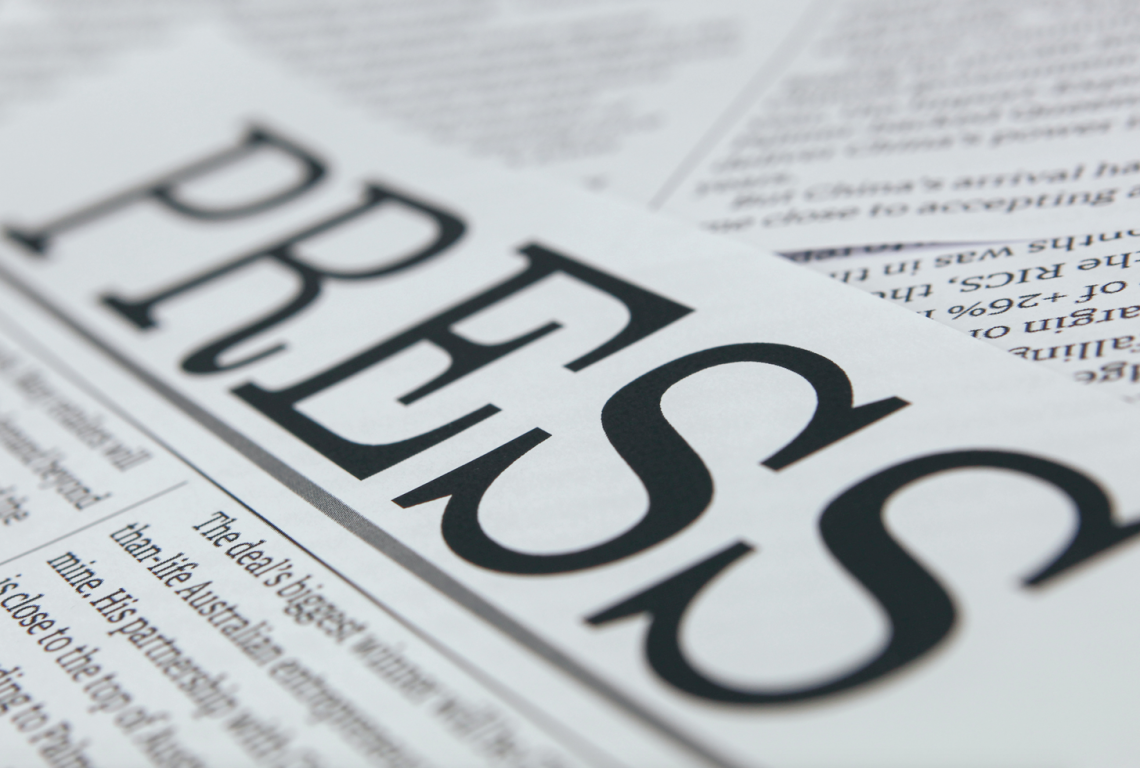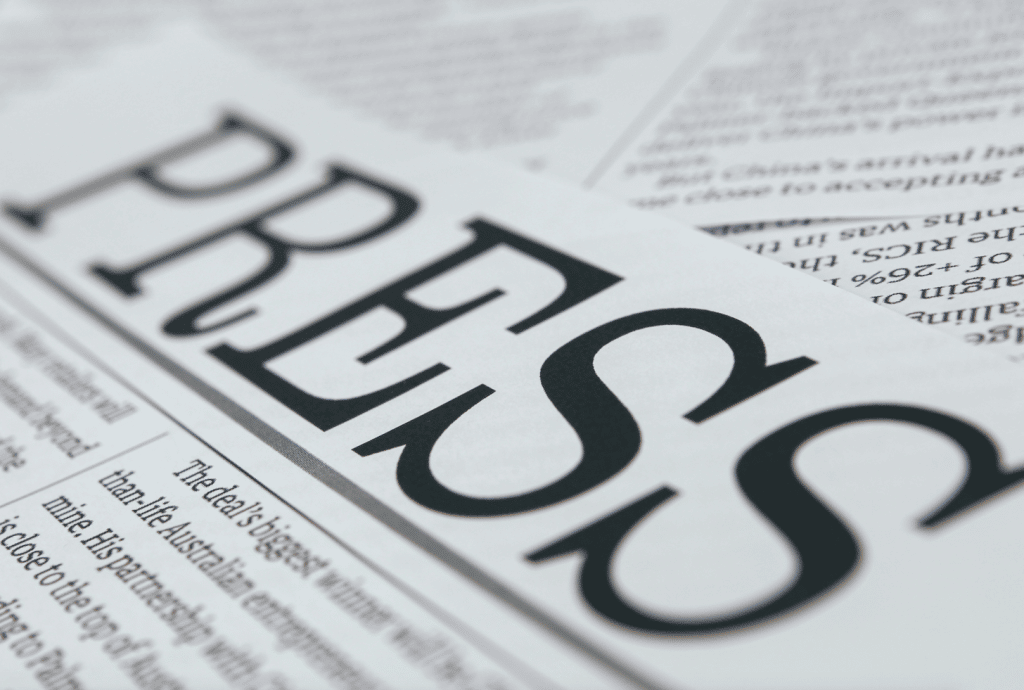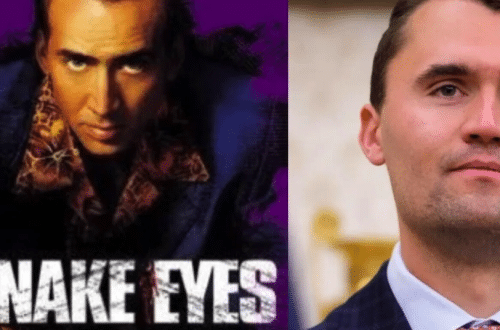Declining trust in the news media is not a new phenomenon, nor is it terribly surprising to anyone paying attention …
The Sick Old Man of Politics – An Expose’ on The Mistrust of Dying Mockingbird Media
by Mike C. Goodwin | Contributing Writer | Eternal Affairs Media
Before the outbreak of World War 1, the Ottoman Empire was referred to with a rather unflattering moniker, “The Old Sick Man of Europe.” This was in reference to the Ottomans being a declining power, with all others waiting for it to die. The fear was this upset in the balance of power would result in a massive conflict. This was preempted by an assassination in a country that many never even knew existed, and those tensions and treaties led to the first World War. As recent polls suggest, the American political landscape has a sick old man of their own: The mainstream news media.
Recently, events such as the 2020 election, the COVID pandemic, social upheaval, and a variety of widely reported court cases have shown the American citizenry to be divided in ways not seen in fifty years. Divisions are no longer seen as simply a political matter; they are deeply personal. One’s opponent is no longer simply wrong, they are evil. You could ask how has this happened; how are we being pulled apart at the seams at nearly every issue? It is not surprising when one considers that we cannot even agree on the facts of an issue, much less its outcome. This is because our trust in those men and women providing those facts has all but evaporated.
Declining trust in the news media is not a new phenomenon, nor is it terribly surprising to anyone paying attention. Still, most Americans do receive their information from only a few broadcast sources. As numbers are suggesting, however, while Americans rely on these sources, they are increasingly distrusting them.
A recent poll by the Poynter Institute, a non-profit group that focuses on issues of journalism, shows 29% of Americans trust the media. Another by Gallup shows 36%. Broken down, the Gallup poll shows Democrats overwhelmingly trust mainstream sources at 68%, while Republicans seemingly disregard the mainstream media completely with 11%. While this could be excused by saying that Republicans have historically distrusted the news, it would not explain why Independents rated only 31%. Any organization with a positivity rating of 36% is in serious trouble, and the media is no different. The question is why? What has changed when one considers that 55% approved of the media in 1999. What could cause a near 20 point drop in as many years?
As with all sick old men, there are a variety of maladies. Almost all self-inflicted, there is one glaring exemption: technology.
Perhaps for nostalgic reasons, most people are under the belief that there was a time when the news was not biased. This is simply not the case. Since the first newspapers were printed in this nation, there were obvious examples of political bias. The difference seems to be that at the time, the leanings of the publication were widely known and accepted.
While this was not necessarily what one would call a neutral presenter of the facts, it was at least to some degree an honest one. With the advent of mass communication, however, these regional outlets would eventually be overshadowed by broadcast journalism.
The modern example of a courageous journalist standing against the storm is usually exemplified by Edward R. Murrow and his defiance of Senator Joseph McCarthy’s prosecution (or persecution, depending on whom you ask) of communist infiltrators. Known as the “Red Scare,” (technically the 2nd Red Scare, the first being after World War 1) the House Committee on Un-American Activities as well as McCarthy would investigate US citizens suspected of communist influence. Murrow went to produce many broadcasts designed to criticize McCarthy. While Murrow’s actual role in the eventual downfall of McCarthy and the anti-communist era is open to interpretation, many agree Murrow was the first journalist to editorialize, rather than simply report the news.
After Murrow, America’s main idea of a broadcast journalist would be Walter Cronkite. Widely regarded as the most trusted man in news, Cronkite also remembered for saying the Vietnam War was unwinnable, a move that some historians claim was the turning point in that conflict. Whether or not this is the case is immaterial at this point. The very notion that one man’s opinion could influence an international conflict illustrates the point that he was no longer an observer and presenter of the facts.
As both Murrow and Cronkite were clearly not neutral actors, trust in the media was high for both. Without knowing, however, the decision to include editorial content would plant the seed. Or in my already tired analogy, the first sniffle of a sick man.
Cable news began in earnest in the first Gulf War. CNN became famous for being able to provide 24-hour news programming with boots on the ground journalists. The joke was made that Saddam Hussein would fire a rocket and turn on CNN to see where it landed. This appetite for constant news was a far cry from broadcast news in the evening, and certainly different from the evening newspapers. This appetite would serve to undermine the credibility because as hungry as the populace was for constant news, when the trumpets of war fade, it gets very quiet very quickly. And silence is costly, in the broadcast world. The networks therefore began to host commentators. Professional communicators with an agenda would now share the same channel with supposed journalists.
In the beginning, this was easy enough. In fact, a conservative news network known as Fox News would be founded. Now the conservative audience had a network they could claim as their own. This duopoly would not last, however, as technology progressed yet again, and the name Drudge would become famous.
A presidential scandal erupted with a whisper during the Clinton administration. While many knew of the inuendo and rumor, the details were widely glossed over at first. This was the way of things until an Internet site known as the Drudge Report broke the story of then President Bill Clinton having an affair with intern Monica Lewinsky. While many considered this affair a private matter, it nevertheless led to the impeachment of Clinton.
The much larger effect was that news was no longer the sole domain of the larger broadcast empires. In fact, anyone with an Internet connection could theoretically reach the same amount of people. This alone would not necessarily mean the decline of news media were it not for a specific cultural shift in the nation at the exact same time, the birth of Reality Television. A series of reality-based television shows emerged (much to the chagrin of writers, I’m sure) that operated on the interesting (if not horrifying) premise that one did not need to be famous to be on television. While daytime talk shows broadcasted human trainwrecks on shows like Jerry Springer, Maury Povich, Jenny Jones, and a variety of others, the evening entertainment now had completely average people trying not to die on an island (for reasons never quite stated.)
Why this would affect the news media is a simple matter. You see, all networks are run by the same types of executives. Where news was once seen as a public service that operated at a loss, the cable industry was showing that not only could such operations cover their cost, but they could also thrive. Couple this with the fact that many networks operate under an umbrella of a larger corporation, suddenly the same executive in charge of reality TV programming could now find themself in charge of a news network (which is currently the case with Jeff Zucker.) So, the groundwork was laid for corporations to interject conflict and personality into the news, not just editorialization. They would not only rush away from straight news, but they would also embrace a new Frankenstein’s monster of celebrity news broadcaster. They would now need their acolytes.
While commentators and pundits were always on to debate their opposite, the role of the anchor or host was traditionally a rather bland one. Maybe handsome, perhaps with a Midwestern accent, but never truly a standout personality. One meant to make hearing the news palatable to all. With the Rubicon of objectivity forever crossed though, a new being would need be conjured. The modern host of a cable news show.
For as reality television showed the executives that a braying jackass would be watched by enough people if the pitch was right, it showed thousands of mediocre individuals that they too could be worthy of being heard. It also showed them something far more frightening, that they, like Murrow and Cronkite, could affect the course of the nation. They would take to this like a leach to a pig’s ass.
Now on the cable news channels, one could find all manner of political operatives on a daily basis hosting a show. Former speechwriters, chiefs of staff, communications directors, all manner of former bureaucrat were summoned from obscurity and given an audience. They had learned a valuable lesson from the past; why try to convince a voter to support something with reason and debate when you could much easier drill an audience. An unelected class of activists, preaching to you in the comfort of your own home. There was another, darker allure to this as well. They would get to become the celebrity class themselves.
For it was not enough for these news hosts to be on their own shows, they also wanted to have influence outside their timeslot. Some wrote books, others went on talk shows, all became activists for a cause, but mainly they all had one thing in common: a largely unearned sense of self-worth. Some were famous simply for their last name, others for their family’s fortune, still others for the over-the-top personality that became a bit too much for everyone except their devotees. They were paid exorbitant amounts of money and were listened to by respectable numbers of people. They were written about; they were interviewed, and they were listened to. They broke the cardinal rule of a journalist while playing the role of one: Never make the story about yourself.
You see, the words “I Think” should never appear in a news broadcast. It is not the journalist’s job to say what they think. It all started very simply; the journalist goes out into the world while the rest of the people work all day. When they get home from the salt mines (or whatever hopefully non-atrocious job they have) the journalist tells them what happened that day. They are given the facts, the sports scores, and probably a commercial for soap (on account of the salt mines.) It was this violation that began the erosion of trust. It’s really very simple. People get annoyed being preached to when they aren’t in church (even in church it gets a bit dicey.)
Then of course, there was another reason for the falling form grace for the media; online media.
For as Drudge showed the media to be quiet about matters they deemed unimportant, online broadcasting showed them to be flawed, corrupt, and in many cases just downright moronic.
This is not to say mistakes were never made in the past, newspapers offer corrections all the time (conveniently in the back, next to the classifieds from the Zodiac Killer.) Readers tend to forgive mistakes very readily, there is even a term about this called Gell-Mann Amnesia. This happens when the reader knows a source to be incorrect in one area but still assumes they are correct in every other. For example: Bob reads that once people reach the age of 60, their teeth come to life and attack the owner’s head. Bob is 61 and knows for a fact this did not happen. Bob also reads, in that same paper, that people named Richard are all secretly vampires. Bob believes Richard from across the street is a vampire even though he knows for a fact that the paper was wrong about his self-cannibalizing teeth. This the Gell-Mann Amnesia.
So it is not that people are unforgiving of honest mistakes, it is that these mistakes all seem to happen in the same direction, which implies motive. Online resources such as YouTube or Rumble are full of people who make quite a decent living pointing out all these mistakes, and to be fair, they have been quite horrible as of late.
In the past four years we as a nation have been misled on the following topics:
- The president colluded with Russia to steal the 2016 election, which now appears to be false.
- Covington Catholic School students accosting and berating a Native American in Washington DC, a lie that cost CNN an undisclosed amount in a settlement.
- Hunter Biden’s laptop containing, shall we say, “questionable” material of both personal and business matters, censored from Facebook and Twitter even though it is true.
- Andrew Cuomo’s handling of COVID 19, which reports suggest may have been terrible at best.
- Chris Cuomo’s “quarantine” in which he was seen outside during his supposed lockdown. In fact he had a confrontation with a cyclist about that very subject.
- Discreditation of the Steele Dossier, which appears to have been political opposition research from the Hillary Clinton campaign.
- “Mostly peaceful protests” over a year in which dozens were killed and billions of dollars in damage.
- Antifa being an idea, not an actual group. They are in fact a group. They fundraise and have independent cells in every state.
- Black Lives Matter group being a civil right organization despite blatantly advocating communism, violence, and segregation
- Critical Race Theory not being taught in schools despite it being on several official school district websites
This list would be bad enough on its own were it not for the fact that I made this list off the top of my head. A simple Google search will reveal innumerable mistakes. Though to call the Russian Collusion issue a mistake is ludicrous as it is a blatant lie that has gone on for over five years. One can dislike the policies and positions of President Donald Trump, rightfully so in many cases, but to sink to the depths they did and expect to be trusted again is the behavior of the demented.
So while the media more than likely cost President Trump his political career, they damned themselves to exposure in the process. The 11% of Republican trust should not scare them any more than the 68% trust of the Democrats should. It’s the Independents that they have lost now. Trust is a very strange thing, after it is lost it is nigh impossible to retrieve. Years of it can be lost by one action, and the mainstream media have been doing far more than one.
None of this is to say that the mainstream news media will die. For that is impossible. They can, however, become as Pravda was in the former Soviet Union: Largely mocked by the majority and certainly ignored by it. Even with whispers around CNN that a new management style will focus on getting back to straight news, it seems that old sick man of the media has more than a chest cold. His relatives aren’t coffin shopping yet, but they didn’t buy him a 2022-year planner either.
So the future may bring a hybrid of multiple online news sources. As it was in the past with regional newspapers, perhaps a wide variety of sources will fill the gap. Americans still have an appetite for news and information, after all, and there is an army of independent journalists at the ready. All one needs is an internet connection and a phone. For now, sites like YouTube and Twitter still have their hands on the scales, propping up the old fellow, but that cannot last forever. While “shadow banning” other content creators and censoring language will work for now, those are the tools of the authoritarian, and one need only a cursory knowledge of history to know how that ends.
The Old Sick Man of Europe was a problem that ended in a world war. In fact, Weimar Germany was described the same way before the second. This is not to say that if America doesn’t get its Don Lemon fix we will fly off to nuke Japan, it is to say that change is coming. Change is as inevitable as it is unpredictable. For as the cable news outlets could have focused their resources and infrastructure on investigative journalism and in-depth analysis of current events without bias or spin, armies of citizen journalists now accomplish the same (the Egyptian Revolution was largely covered on Twitter by students and normal citizens, after all.) It is not beyond the realm of possibility that these citizen journalists will become major competitors due to a vast emptiness that exists currently for real news. Nature abhors a vacuum, after all.
The media had a simple job if you consider it. Just tell the public what happened while they were at work. They could throw in the weather for tomorrow and did the Packers cover the spread. Maybe also give us a heads up on the fact that China is economically unstable and desires expansion while Russia is poised to seize areas of Ukraine.
Not a hard gig, really.
Pages: 1 2











